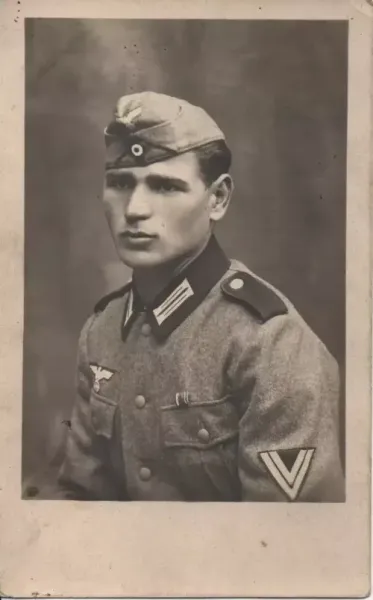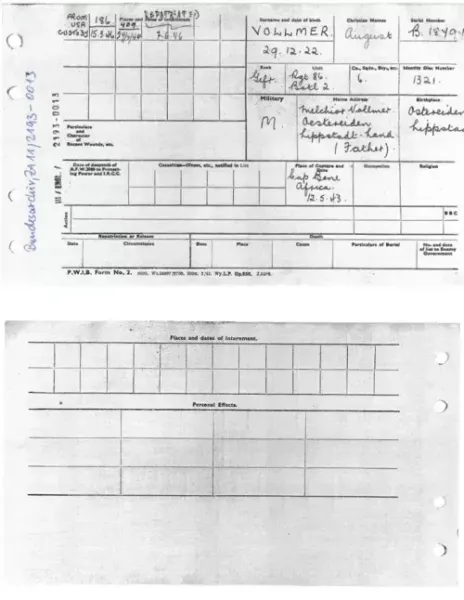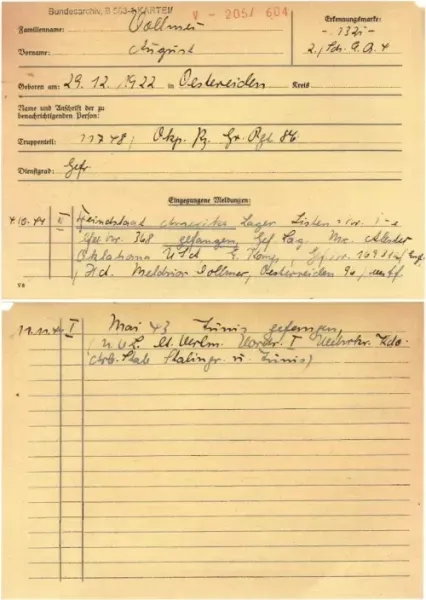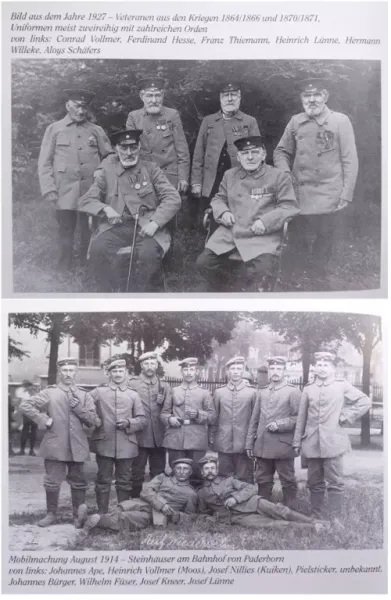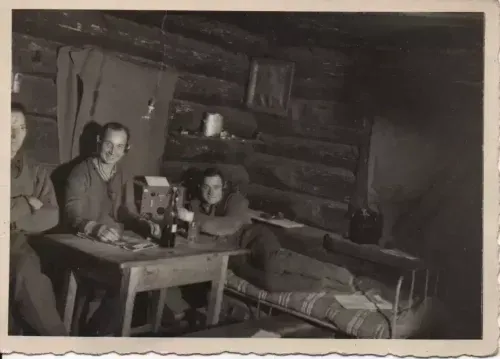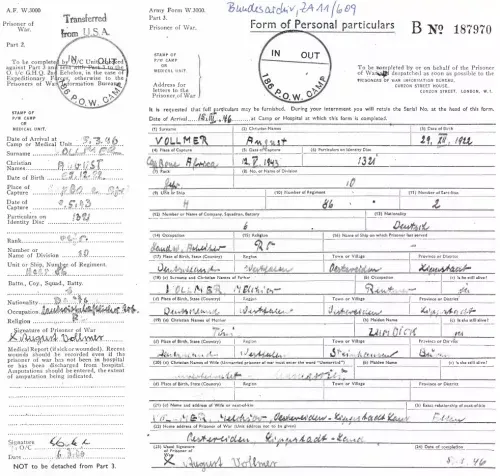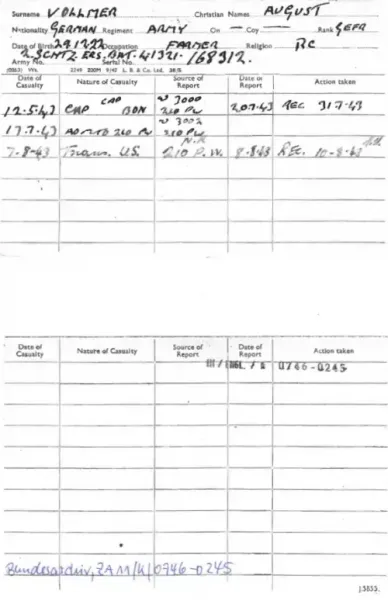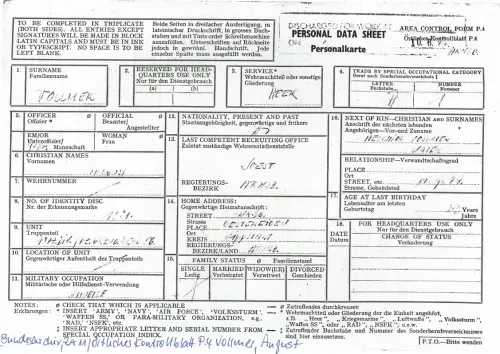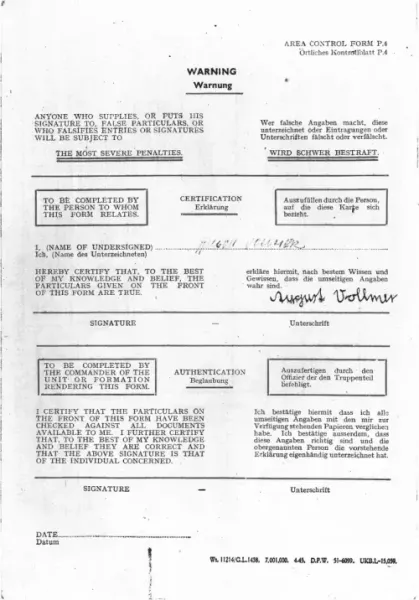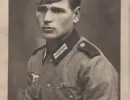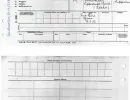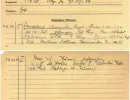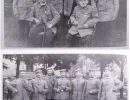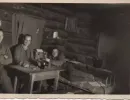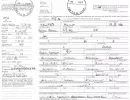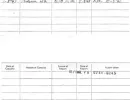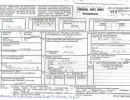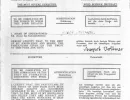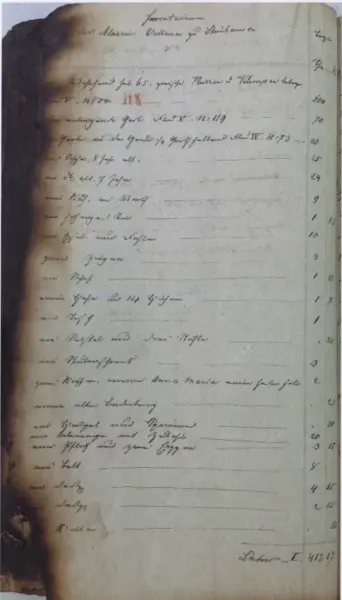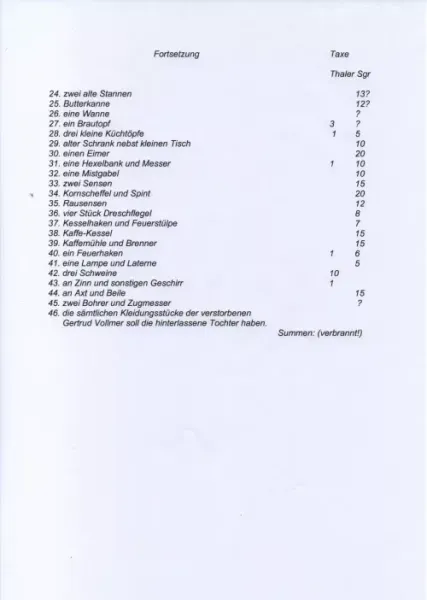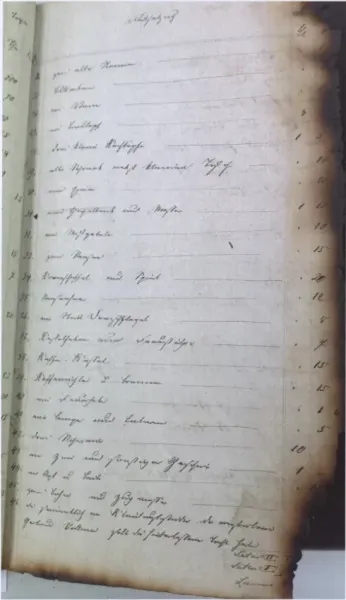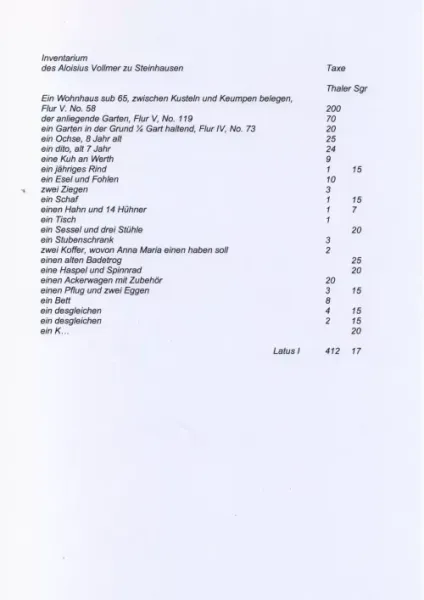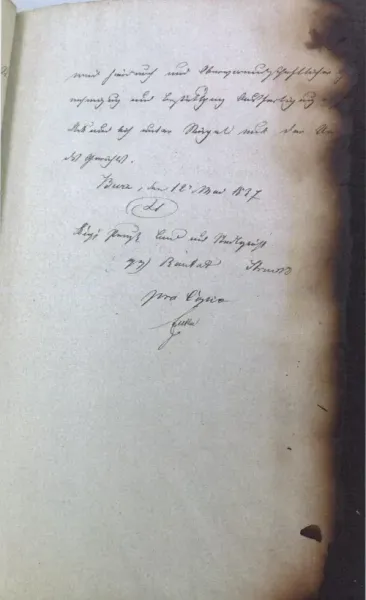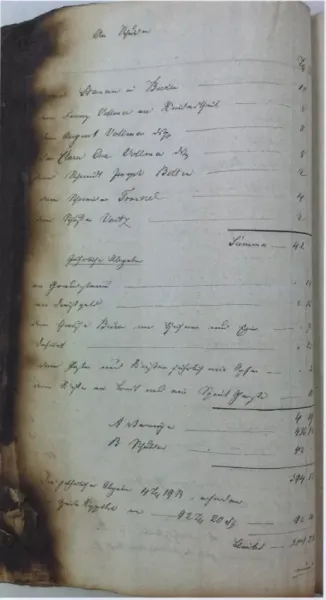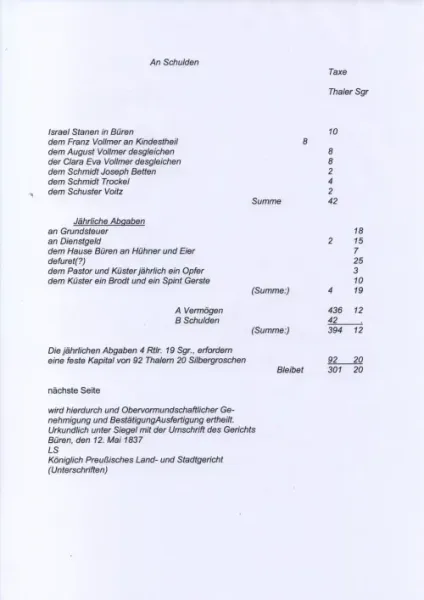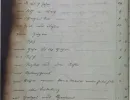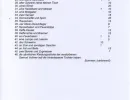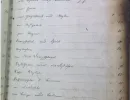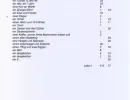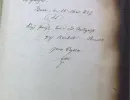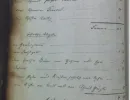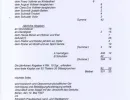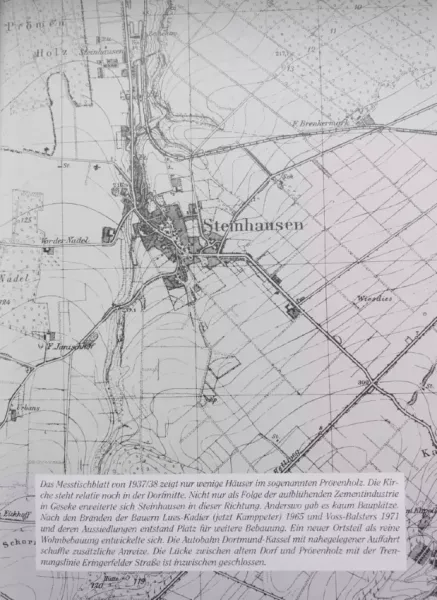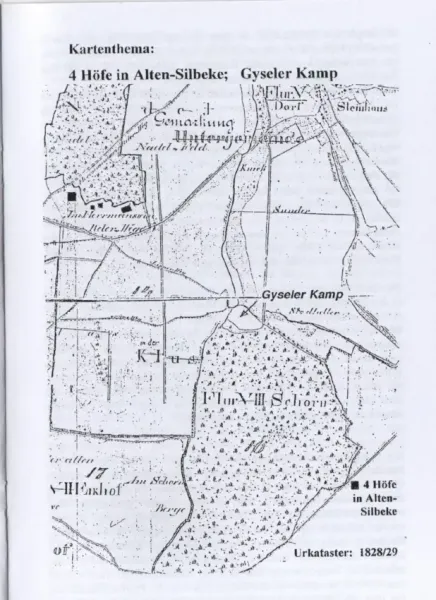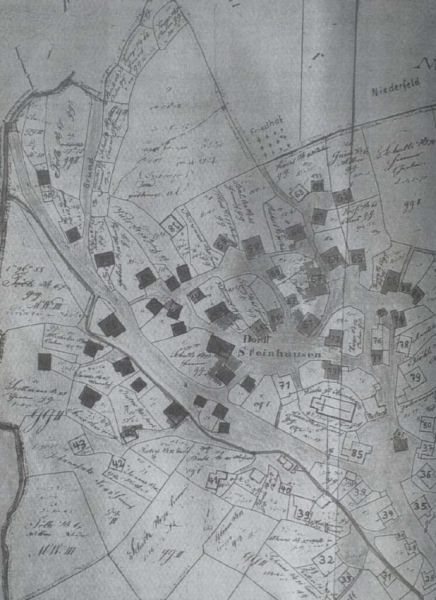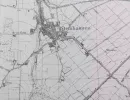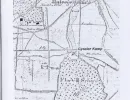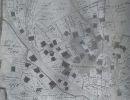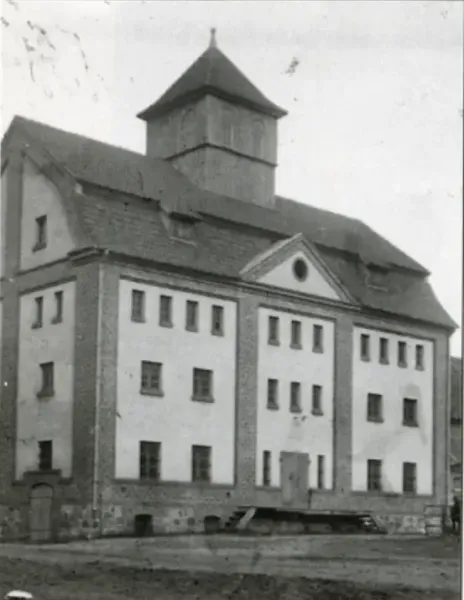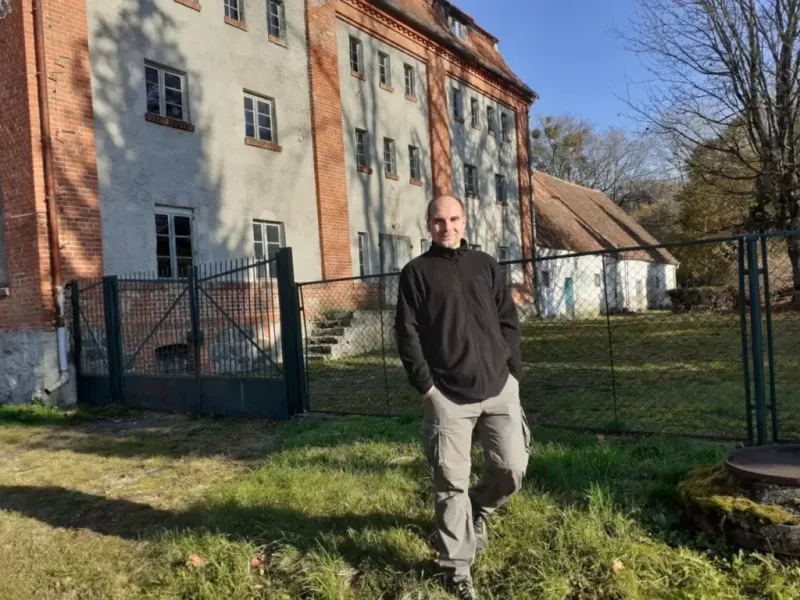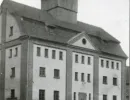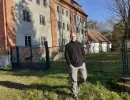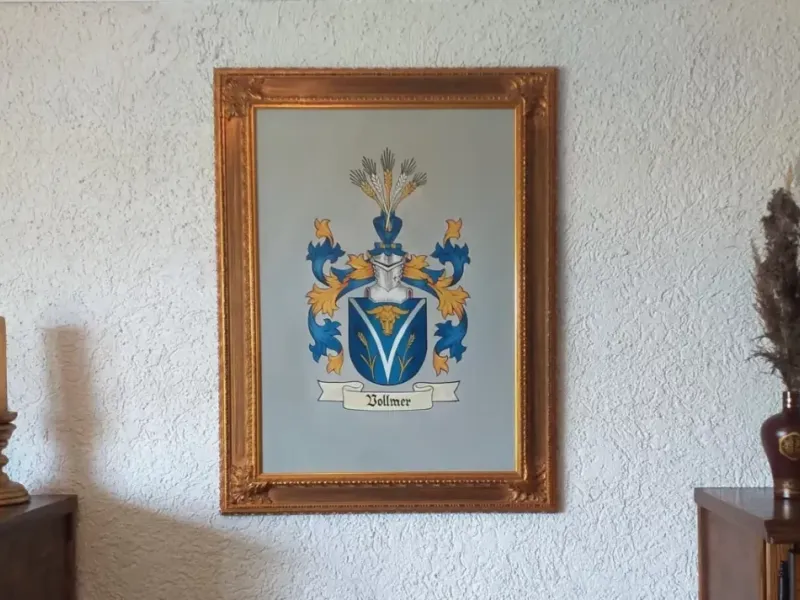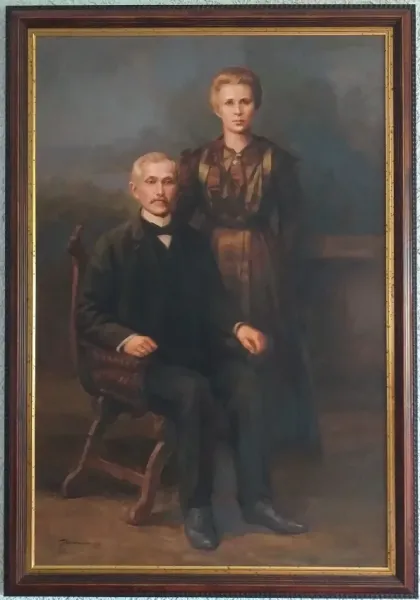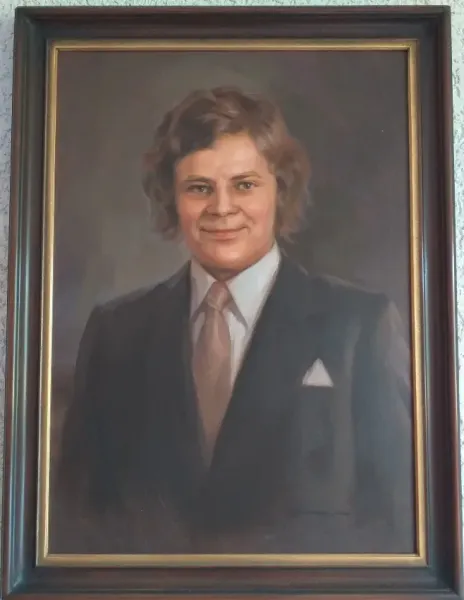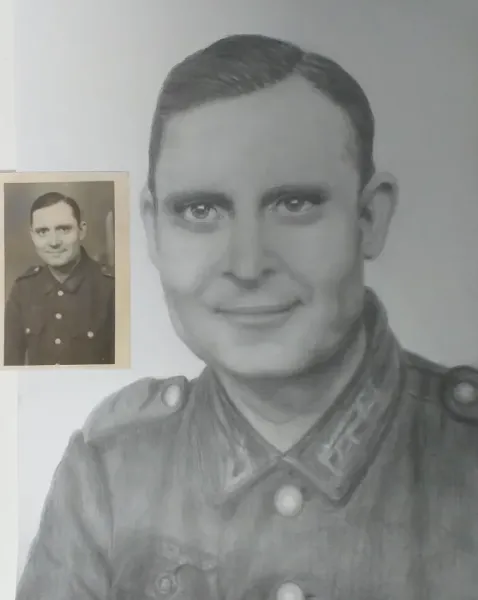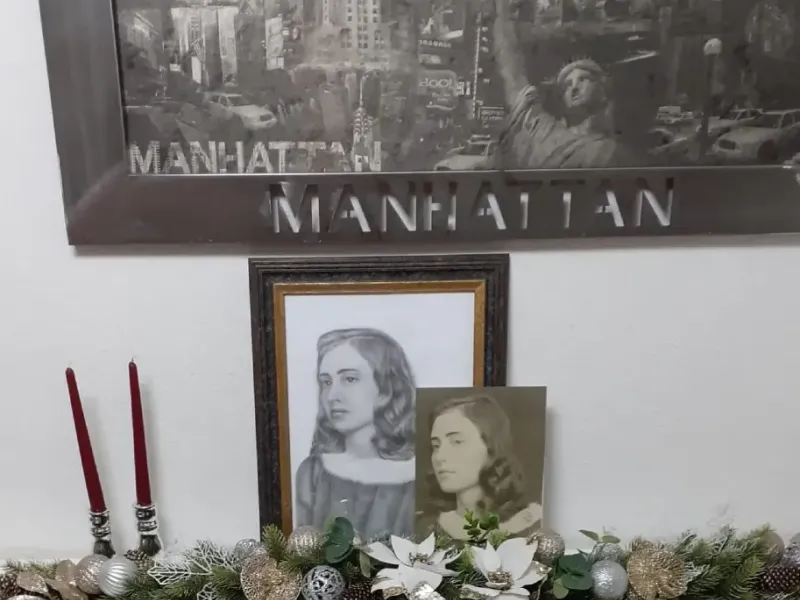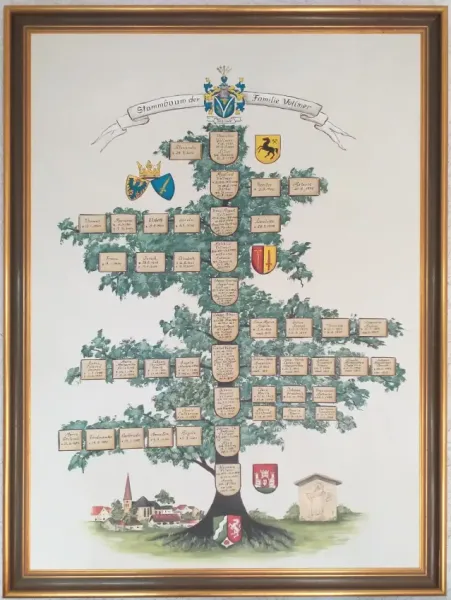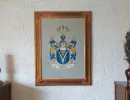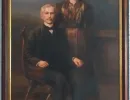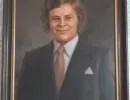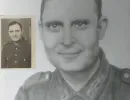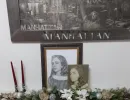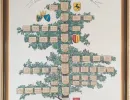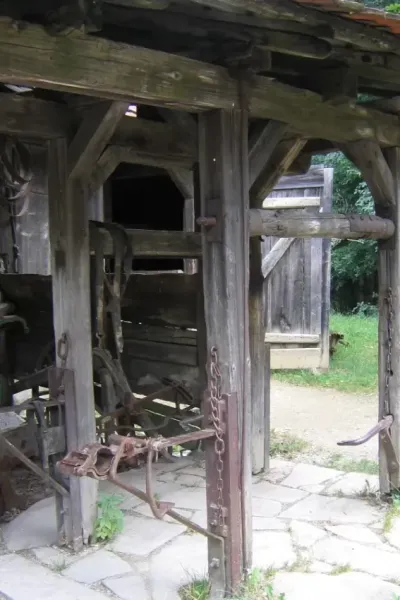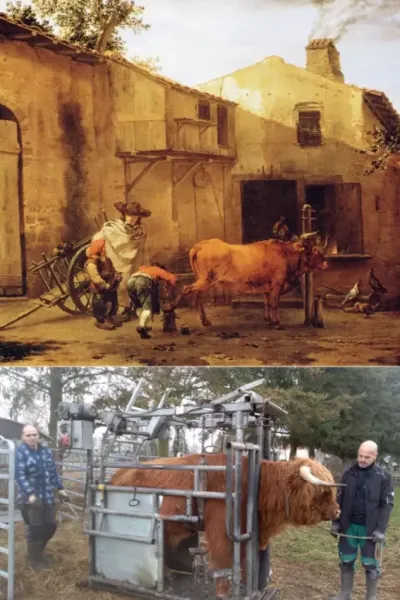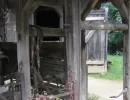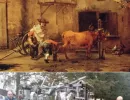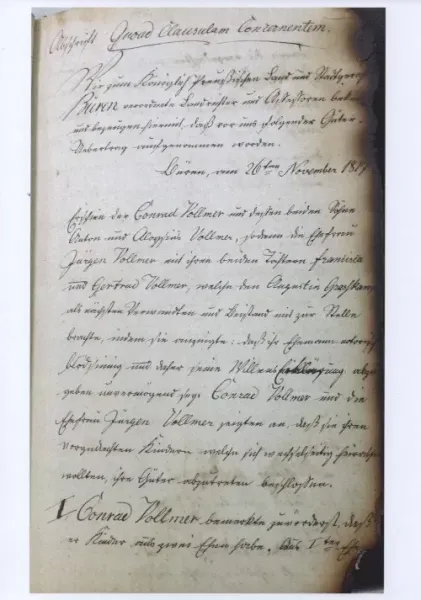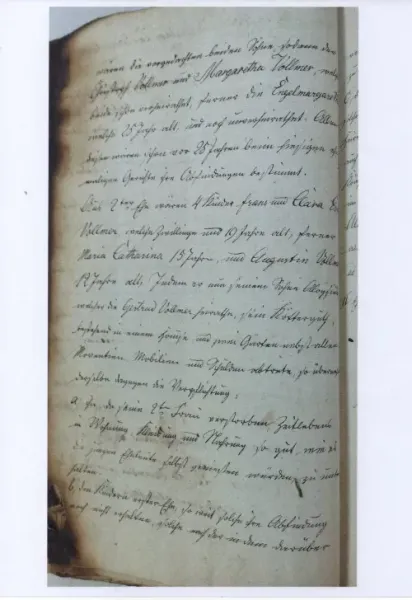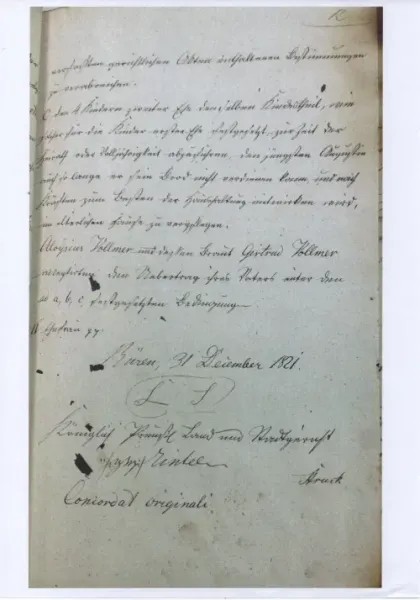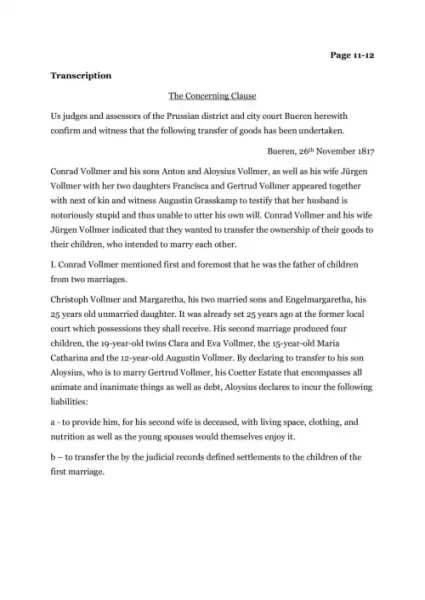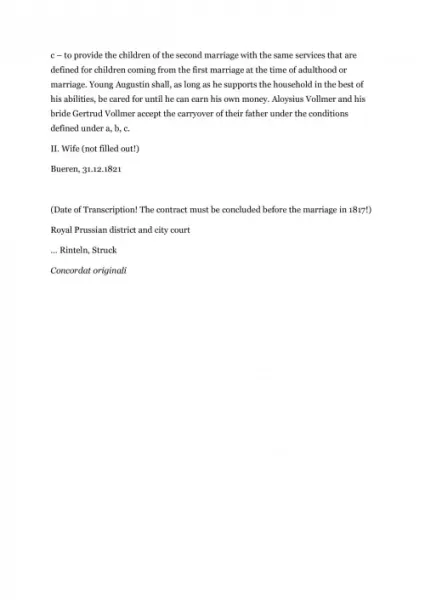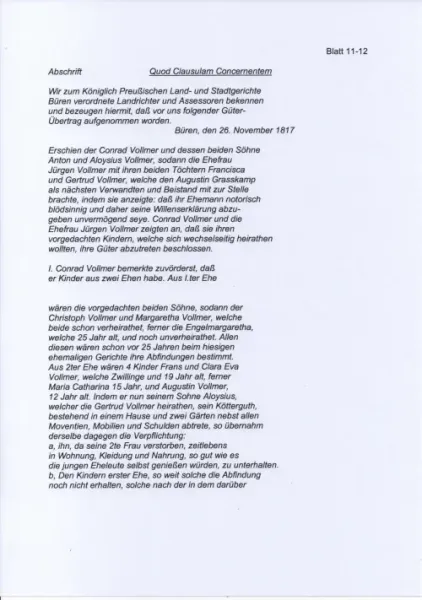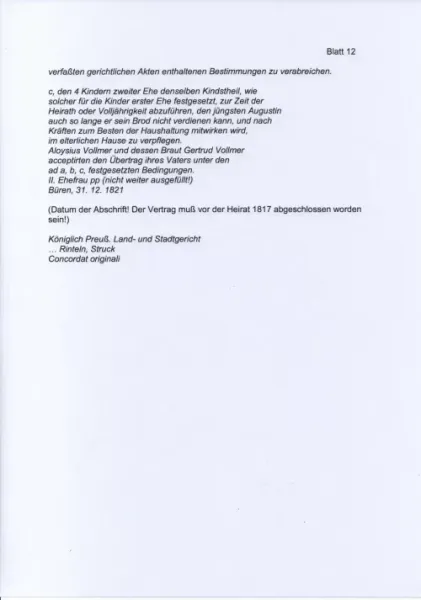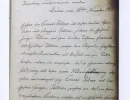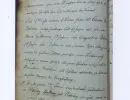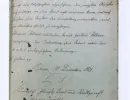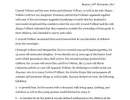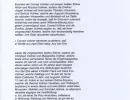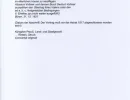Details | GalleryMilitary Research | Financial Reserach | Archaeologie | Research Trips | Artwork | Occupational Research | Translation | Stories |
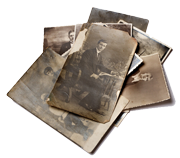
Genealogy is multifaceted
Our mission is to strengthen the bond between you and your family and bring you a step closer to your loved ones.
Below you can see some examples of our manifold services.
Military Research |
The most demanded area of our services is military research. Due to the large number of protracted wars, we have to admit that war always accompanied our ancestors. In order to learn what our ancestors experienced during their worst times, we have to delve deep into this matter. Origen uses documents such as files, maps, pictures, posters, films and sound recordings in analog and digital form. They range from the Holy Roman Empire (1495) to the present day.
Specifically, these are archival records of the Prussian Army, the Imperial Navy, the Schutztruppen and Freikorps, the Reichswehr and Wehrmacht, the National People’s Army, and the Bundeswehr.
We research the entire military history of your ancestors. So you will learn where your ancestors were, what they did, where they fought, what awards they were given and where they were captured. The places of deployment and what they experienced will be completely and specially made for you.
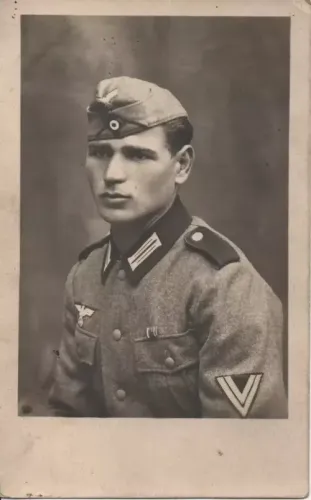
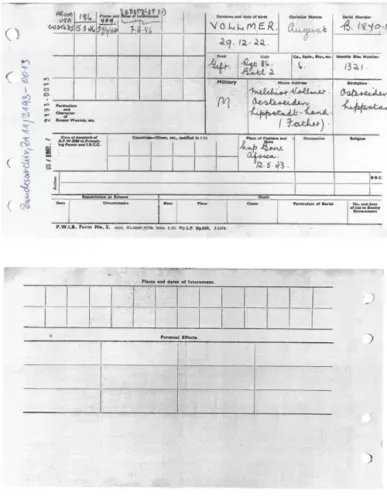
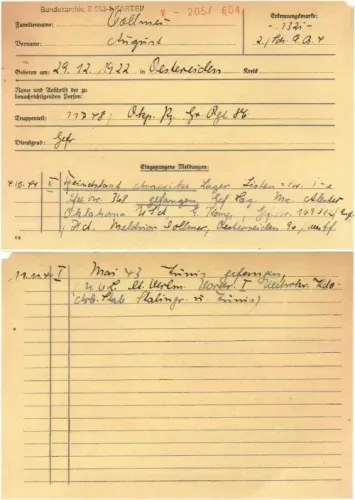
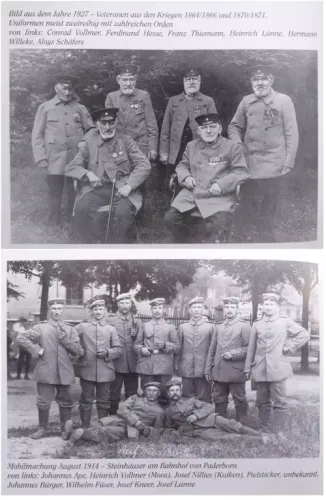
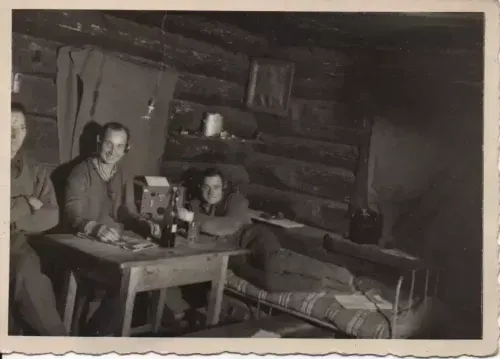
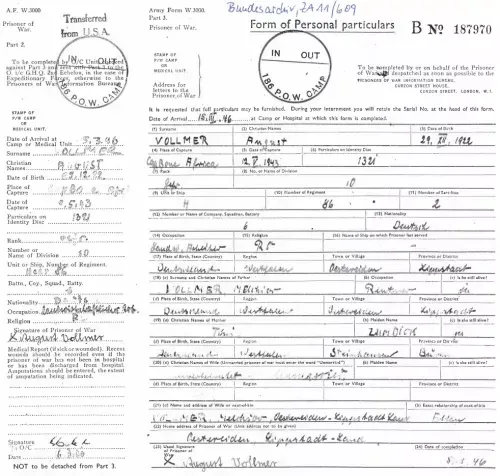
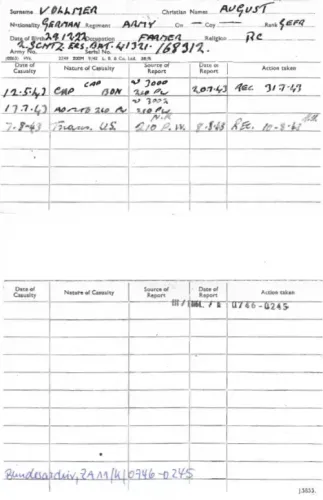
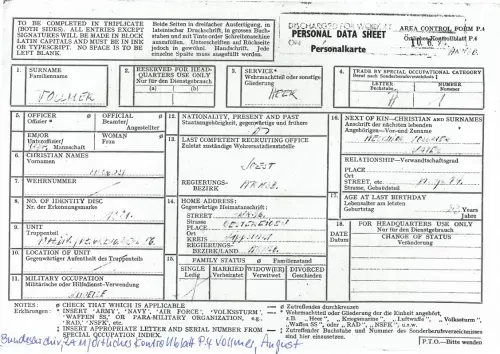
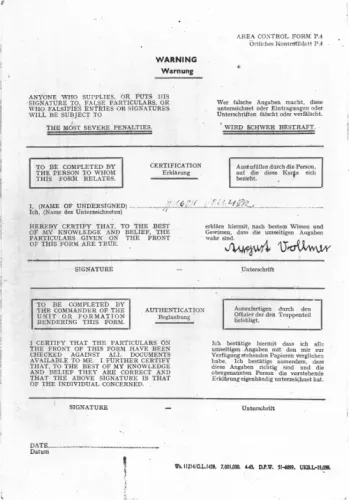
Financial Research |
How great was the prosperity? From which social class did the great-grandparents come? Did they live in luxury or did they struggle daily for their existence? These questions can be answered more often than one might think. In our example, we found an inventory list from 1837 that listed assets and debts.
The assets of the ancestor Vollmer in 1837 amounted to 301 Reichstaler and 20 Silbergroschen. He owned a Köttergut, with a house, two gardens and farmland. The annual earnings are given as 92 rix-dollars and 20 silver pennies.
As a comparison, a farmhand earned about 30 rix-dollars annually, including board and lodging. One rix-dollar had a gold content of 0.34 g, one silver penny a silver content of 0.48 g. In relation to the number of inhabitants, their average purchasing power and the amount of gold and silver circulating in the country at that time, this results in a fortune comparable to that of a middle-class person today.
The annual tax levy was reported to be 4 rix-dollars and 19 silver pennies, which corresponds to a tax burden of about 5% of annual earnings (a dream in contrast to today’s tax burden).
From this we can conclude that the Kötter Vollmer was not rich, but could cover his daily bread well.
Also on the basis of the debts we can imagine the daily life of our ancestors.
- What was the debt ratio?
- What did they need money for?
- To whom did they owe it?
These and many more information are waiting for you and complete the picture of your ancestors and give an insight into the finances of their family at that time.
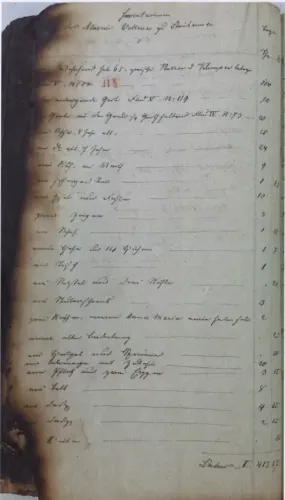
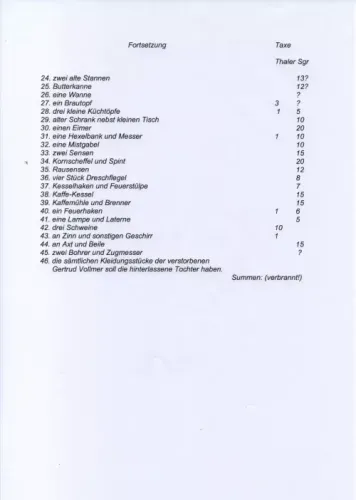
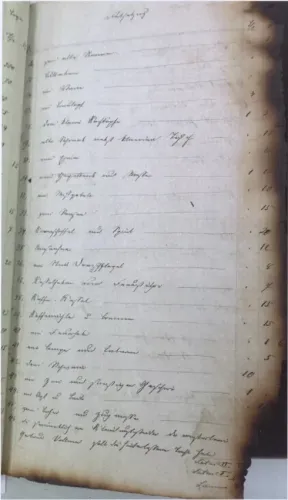
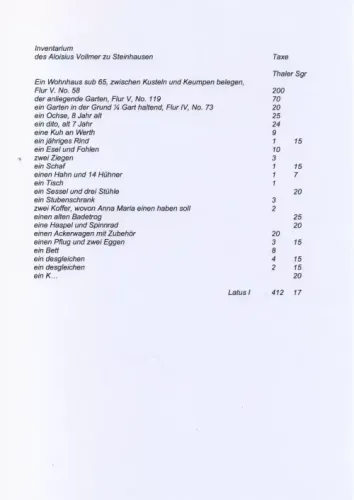
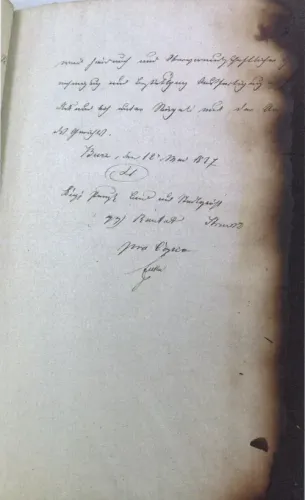
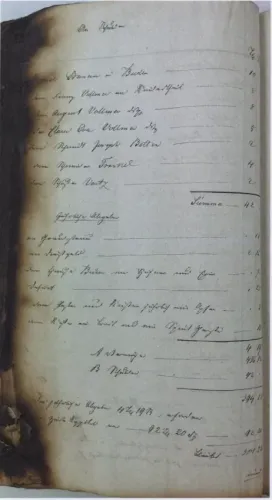
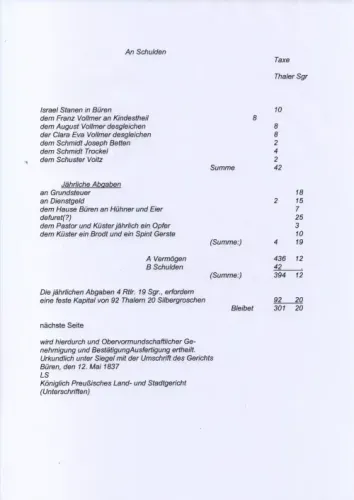
Archaeology |
Family research does not only refer to persons. Different types of research are used to get an accurate result. A crucial part of them is Archaeology.
With archaeology, we find out where our estates are, where the woods for cutting wood are, where possible war sites or old grave sites are located. Archaeology gives us all these answers. Through cadastral offices and archives we find the places that accompanied our ancestors in life and bring clarity into their past whereabouts.
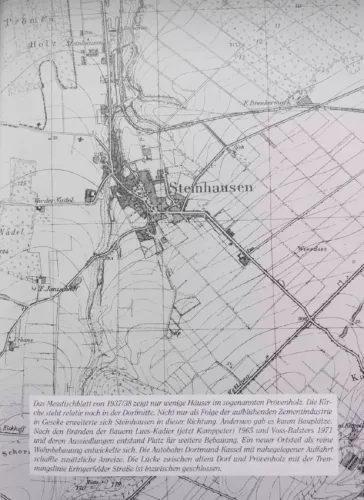
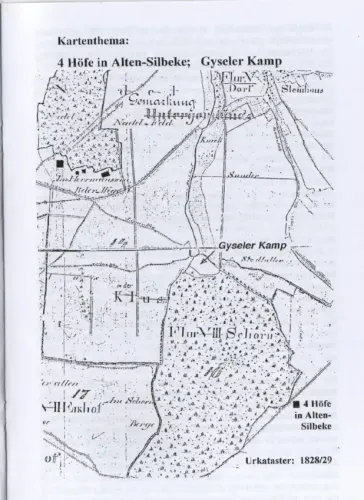
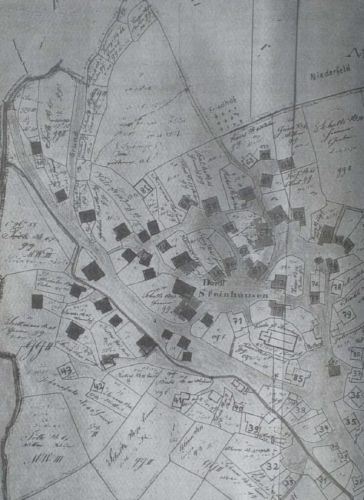
Research Trips |
Genealogy is not merely collecting and classifying data and names. Under certain circumstances it can even be a true adventure à la Indiana Jones. True research takes place outside – in the places of your family’s past.
You want to get a feeling of the places, circumstances and activities in which your ancestors spent their lives? Then a carefully planned and well thought-out research trip is exactly what you need. We will prepare you in the best way possible and put together your individual research journey.
Your search will lead you to remote places. In some cases you will be the first of your ancestors to re-enter abandoned areas or rediscover long forgotten burial sites. You will be able to trace the routes of escape and emigration, as well as courses of war operations. You will also be able to locate long-forgotten sites of your ancestors’ homes and recreate social disputes, whether with neighboring villages or the authorities. You will seek out the old workplaces of your ancestors and uncover their economic circumstances at the time. And not infrequently, you will find new distant relatives.
Do not hesitate to ask us questions. It doesn’t matter if you want to start the research journey yourself or if you want to commission us with one.
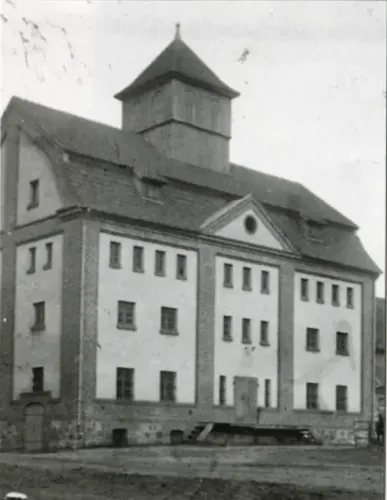
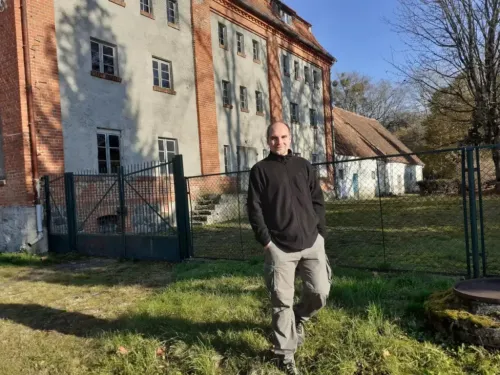
Artwork |
From us you will receive oil and acrylic paintings of your ancestors, customized to your personal wishes. Immortalize your family history on works of art such as genealogical tables, family trees, landscape paintings or portraits. If there is an event from your ancestral history that you find particularly exciting, we can also make a painting of it. This is an ideal way to leave lasting memories with your family members.
Thanks to regular and detailed reports, you can follow the creation of your artwork at each of its stages.
We also offer a framing service and frame your pictures according to your wishes. At your request, we will stretch your painting on a gallery stretcher frame. This way you will get artwork in real museum quality. The stretcher frames we use are of high quality and are made of dried spruce or fir wood.
Do you have any questions? For information we are always at your disposal.
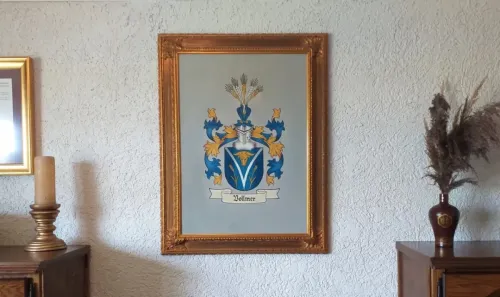
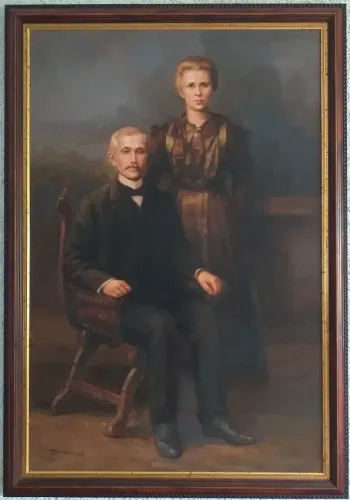
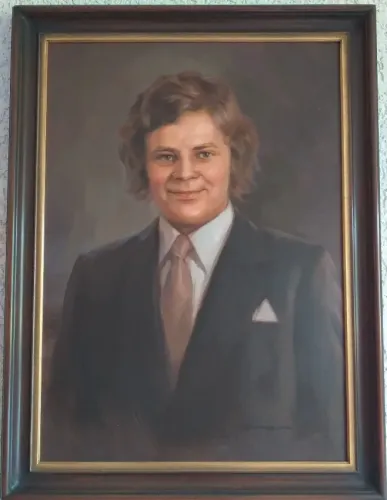
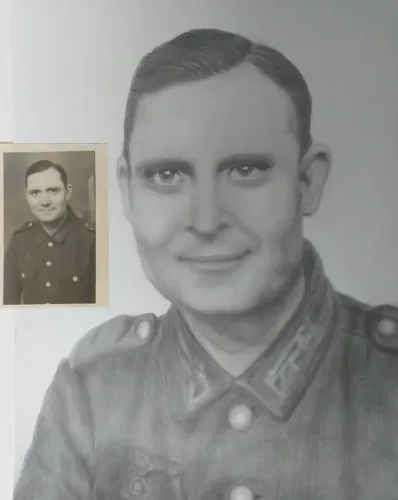
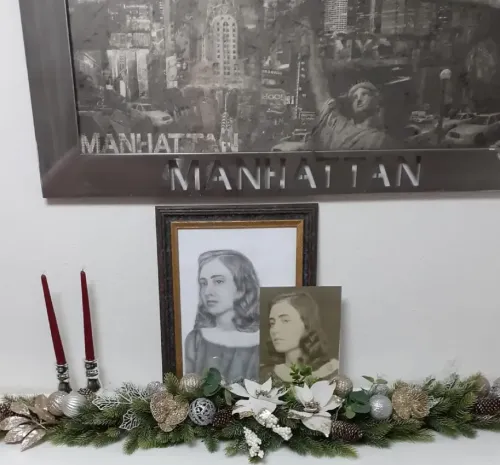
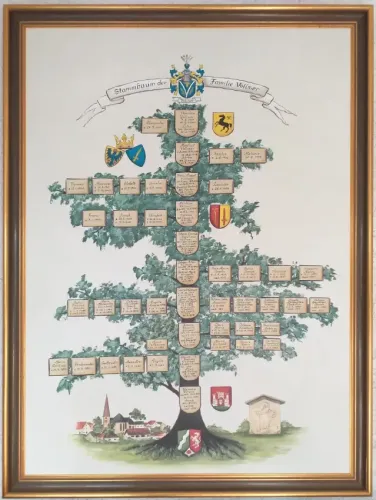
Occupational Research |
Millions of people do it without even realizing it. They perform the oldest professions in the world. Whether craftsmen, physicians or soldiers – even if the means are different, the goal is still the same.
For us genealogists, the question of profession is a crucial one. We devote a large part of our lives to work. In this field the researcher gets the best overview of the life of his ancestor. It also gives us a good estimate of an ancestor’s wealth. A goldsmith usually earned more than a farmhand, for example. And a full coachman owned more arable land than a Koetter.
How hard was everyday life at work? How did it feel when the great-great-grandfather toiled in the harbor unloading the ship’s cargo? How painful was the work of a blacksmith at the anvil? What steps did a tanner have to perform until the leather product was ready for sale?
These and many other questions, we convey to you not only with words. On request we let you experience it. Whether desk genealogy or real-life research work, the choice is yours.
Origen arranges international part-time days so that you can live out your research urge. Step into the shoes of your ancestors for a short time and pay respect to their historical work performance.
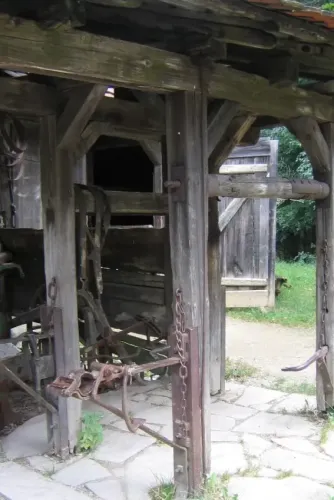
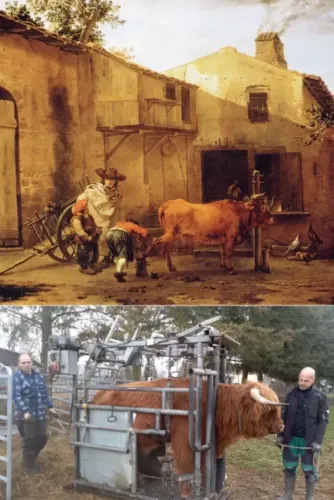
Translation |
Origen searches archives, writes chronicles and histories, searches for war participants, translates documents, conducts research trips and produces high quality paintings for clients from all over the world.
In order to meet this worldwide demand, it is of great importance for us to provide communication in different languages. Therefore we are linguistically broadly positioned.
Even for our German-speaking customers it is usually impossible to read the old scripts. For you we translate the documents into High German.
We are familiar with the following languages: German, English, French and Russian.
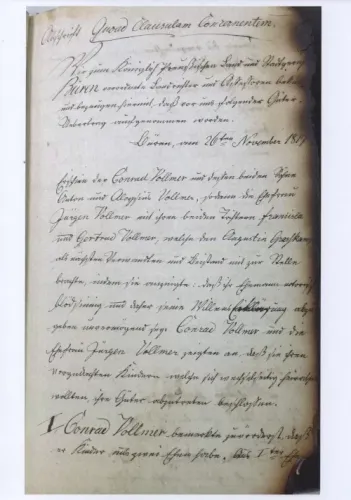
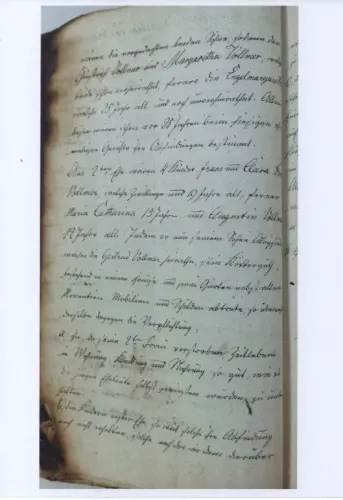
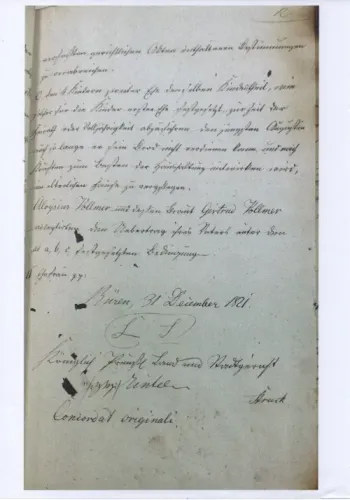
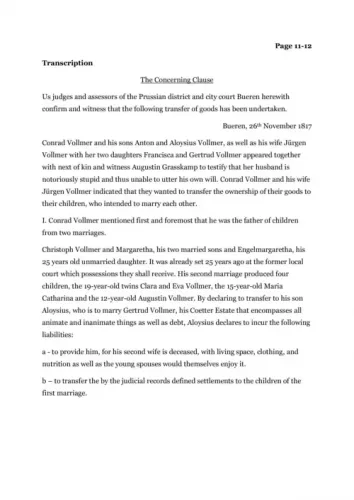
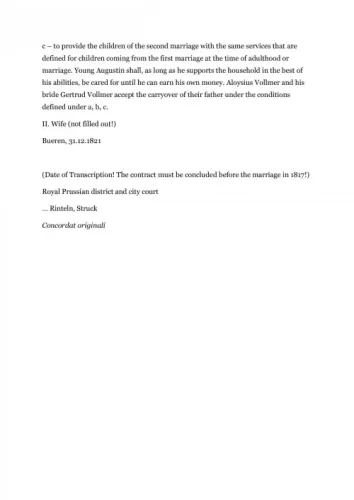
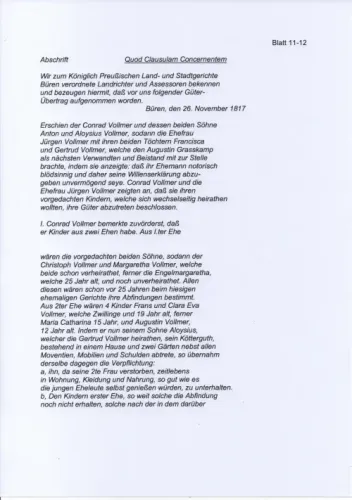
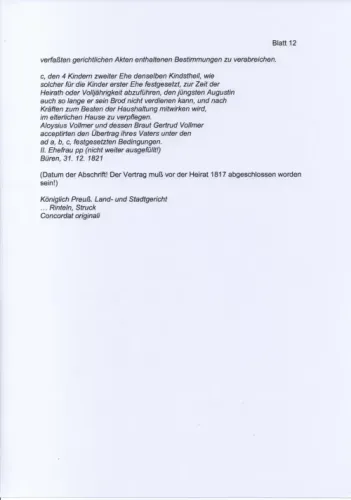
Autobiographical Stories |
♦
"So, how did it go?" asked Roland as Walter hopped behind the piled-up mound of earth. Walter ignored him and stared at the road at hand. Their position was on the main road leading directly to the bridge, of all places.
"If all else fails and there's nothing left to hold here, we'll pull back behind the bridge." Walter again did not answer.
"Did you hear me? Don't freak out," Roland implored him, once again checking his rifle for breech and muzzle. The minutes passed like hours. They were positioned between two houses. Other comrades were entrenched in the surrounding buildings. It was a good feeling to have his people around him. Even if they were not his friends, he was glad not to be alone. This was especially true for Roland. He took it upon himself to stick to his companion and thus survive the war. Walter thought again about Schröder and the last days. The more he thought about it, the clearer it became to him what a terrible person Schröder was. A man who didn't care about others. An egoist. Walter saw the dead in the devastated positions, the boy left to die, and the wild flight from the advancing Russians. He was sure, with the boy in tow, Schröder would not have waited for him. If he had not run quickly after the sergeant, he would have left him to die. The outcome of this disastrous mission was all Schröder's doing, and he vowed to tell the company commander about it after this battle.
♦
A loud bang and a small earthquake startled both men. Then a second detonation and a third.
"Air raid, get down!" shouted Roland and threw himself under cover behind the earth wall. The houses swayed.
Walter looked up at the walls between which they lay. I hope they don't collapse, it ran through his head. The impacts came closer and reached the center of the village. A multi-story building on the opposite side took a direct hit. Dirt, stones and roof tiles flew through the air in a high arc. Screams. The planes flew over the small town several times, dropping their deadly cargo in a practiced manner.
"If this goes on much longer, the town will be rubble. And us along with it," Roland shouted in the thunderous roar.
"Where's our air force?" cried Walter in despair.
Roland laughed. He was already surviving two years of war and guessed that they would have to manage on their own. But before he answered, a plane exploded in the air. They looked up. A thrilling dogfight was raging. One plane was chasing the next. But it was impossible to tell who was the hunter and who the hunted. The narrowly standing houses allowed only a limited view. But they often caught spectacular flight maneuvers. To their disappointment, the dogfight shifted out of their view.
♦
Realizing that the bombardment was over, they cleared their position of debris and rearranged the shifted sandbags. Another detonation echoed through the air and part of the house on the corner of the street collapsed. Then it went dead silent.
"Hey you two." Walter and Roland turned to see Weber jumping in place. "The foreplay is over. They're coming soon now. So pay attention. The front position in the left house is down. So you guys are going to have a little harder time. Do you have enough ammunition?"
"Yes," Roland replied.
"Okay. They'll come in from the right side. Watch out if they push through to the left. They might stab you in the back. So try to stop them from doing that." With that bit of advice, the platoon leader left them alone again and disappeared into the adjacent house, where there was another position on the second floor.
"How are we going to stop them?" asked Walter, stunned.
Roland pointed to the bazooka. This did not reassure Walter in the least. The memories of the last days with Schröder were too fresh. The dead and the battle burned themselves into his memory in such a way that he felt sick. He wanted to forget it most of all, but could not.
Addendum
Walter Stamm's early years were already marked by war. Born in Alsace-Lorraine, the Stamm family had to give up their homeland because of the lost 1st World War. They fled to the Ruhr area, where Walter found work as a hewer in the mining industry. Here Walter married Viktoria Pietrzak in 1933. With the outbreak of World War 2, he was drafted into the Wehrmacht when he was over 30 years old.
The main basis for the war years described in this book was the war diary of Walter Stamm. This book is in the family possession.
The comrade Roland is historically provable because of the diary. Roland Schmidt did not survive the war and fell in 1945 near Potsdam.
The news of the death of the faithful comrade reached Walter in 1952 in a letter from Roland's widow.
Schröder, is a fictitious person, although the diary revealed that there were indeed unscrupulous soldiers in Walter's unit.
Walter Stamm was wounded east of Warsaw as late as 1944. A bullet hit his thigh. He was sent to the Russian prisoner of war camp 193 in Sokol. In 1948 he returned home from the POW camp due to his inability to work.
Walter Stamm was never really respected in his family. There was no close relationship with his children or grandchildren. This may have been due to the fact that his wife Viktoria was not very popular among his relatives because of her strictness. Walter worked as a locksmith in the mining industry after the war and lived in Recklinghausen until his death in 1990. His final resting place is in the forest cemetery in Recklinghausen. He left behind four sons and a daughter.

